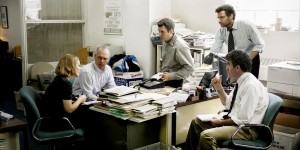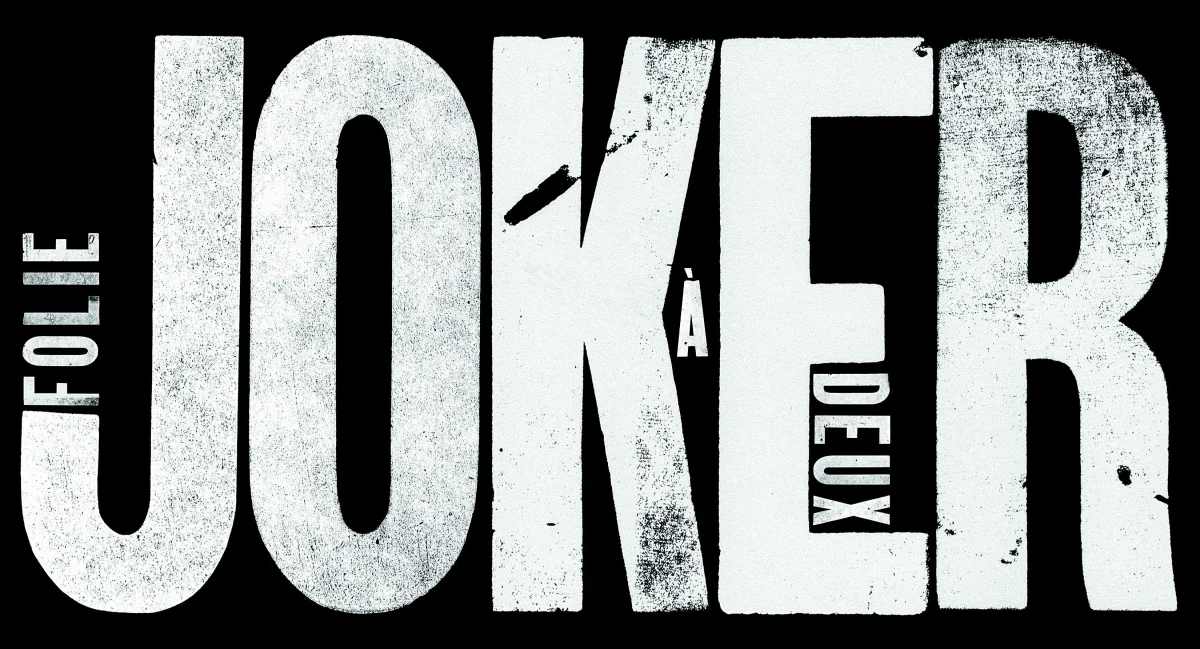
By MATTHEW CHONG and ALEX NOVAKOVIC
Staff Writers
From beginning to end, Spotlight endeavors to tell the true story behind an article published on January 2, 2002 that exposed decades of sexual abuse, and even more importantly, tell it right.
An eponymous team of reporters composed of Walter “Robby” Robinson (Michael Keaton), Sacha Pfeiffer (Rachel McAdams), Mike Rezendes (Mark Ruffalo) and Matty Carroll (Brian d’Arcy James) serve as modern-day muckrakers, exposing corruption in the city of Boston on behalf of their newspaper, The Boston Globe. Editors Ben Bradlee, Jr. (John Slattery) and Marty Baron (Liev Schreiber) task Spotlight, the only section of the newspaper that can both access investigative resources and operate with secrecy, with investigating sex abuse allegations against Catholic priests.
After meticulous research and countless interviews, the team makes a shocking discovery: over 87 priests with parishes in and around Boston have molested children. Even more shocking is that the Church has been negligent in addressing this systemic injustice. In one scene, Rezendes acquires letters addressed to the Archbishop of Boston among a series of court documents in which the mother of seven abuse victims requests that the accused priest be moved to another parish, an appeal that the Archbishop apparently ignores. Furthermore, victims who file lawsuits against the Church are guaranteed only meager settlements, and only after signing confidentiality agreements. Lawyers representing these victims, such as Mitchell Garabedian (Stanley Tucci), also incur the Church’s ire. According to Garabedian, the Church has attempted to discredit him or have him disbarred on multiple occasions.
On January 2, 2002, the story of the team’s investigation is published. Title cards at the end of the film explain that the Globe goes on to print six hundred more articles about the scandal in the following year.
Part of Spotlight’s appeal is due to its subject matter, which is still relevant in today’s society. But the defining factor which separates this film from others is the manner in which its story is told. Screenwriters Josh Singer and Tom McCarthy (who also directed the film) make no attempt to censor any details regarding the scandal, especially regarding the abuse itself. Sacha Pfeiffer says to one of the victims, “We can’t sanitize this, so just saying ‘molest’ isn’t enough. People deserve to know what actually happened.”
The story of one victim, Joe Crowley, is especially touching. “This was the first time in my life that someone told me it was okay to be gay,” he says. “And he was a priest.” Growing up in a homosexuality-intolerant society, Crowley finds relief in the fact that his religion still welcomes him despite his sexual orientation. But once he is taken advantage of by a priest – and one he looks up to, no less – he and the audience cannot help but feel betrayed.
The film’s setting is also painfully ironic at times, especially with regards to the Church and its foothold in the city of Boston. In the background of almost every outdoor shot, a church can be seen or the tolling of its bells heard. Even in the Boston Globe’s headquarters, there are signs of religious pervasiveness: a Catholic high school is situated opposite the building, and a picture of the Vatican hangs in the newspaper’s main conference room.
In fact, the Globe’s headquarters and its surroundings are shot in such a way as to emphasize the seriousness of the situation. Shots with shallow focus are used only in scenes involving abuse victims or the members of Spotlight–in other words, people willing to expose the truth. With the camera focused on these specific people, audiences are able to better understand the emotional effect that the issue has on them. In the case of Joe Crowley, the camera is set up in such a way that the audience can see him fidgeting. His eyes wander as he tells his story to Sacha Pfeiffer; he is clearly nervous and somewhat hesitant to describe the extent of his abuse in detail. When he finally breaks down (as do many other victims in the film), the camera lingers on his face as he tries to regain his composure, simultaneously exposing his vulnerability and eliciting sympathy from the audience.
The camera also pulls out at times, making the characters in the frame appear microscopic against the backdrop of their surroundings. As a result, viewers are able to understand the film’s conflict from the perspectives of the abuse victims and Spotlight team members, meager pawns constantly at risk of the Church’s power bearing down upon them.
Despite a large portion of its screenplay being devoted to comments on Church policy, the film does admit the press is also partially responsible for the issue. Throughout the film, sources mention having sent information to the Globe in the years prior to the beginning of Spotlight’s investigation. Keaton’s character recalls that he “buried” the story while he was editor of the Metropolitan section, much to the shock of his editors and fellow team members. But as Marty Baron says afterwards, “Sometimes it’s easy to forget that we spend most of our time stumbling around in the dark. Suddenly a light gets turned on, and there’s a fair share of blame to go around.”
With its fast-paced and unflinching portrayal of one of the most sensitive events in recent history, Spotlight is a cautionary tale of what can happen when an institution is left unchecked by both the public and the press. More importantly, however, the film reminds audiences that regardless of the power of an organization, its crimes can be exposed through diligence and good reporting.
Spotlight was praised by critics and audiences alike, earning a 96% “Certified Fresh” rating on Rotten Tomatoes and winning two well-deserved Oscars (one for Best Original Screenplay and another for Best Picture) at the 88th Academy Awards this past February.
Categories:
“Spotlight” turns up the heat
March 27, 2016

0
Tags:
Donate to Sword & Shield
$180
$1000
Contributed
Our Goal
Your donation will support the student journalists of University High School. Your contribution will allow us to purchase equipment and cover our annual website hosting costs.
More to Discover













